May 28, 2025 | 15:15 GMT +7
May 28, 2025 | 15:15 GMT +7
Hotline: 0913.378.918
May 28, 2025 | 15:15 GMT +7
Hotline: 0913.378.918

Nguyen Van Long, Director of the Department of Animal Health in an interview with Vietnam Agricultural News. Photo: Dinh Muoi.
According to the Department of Animal Health, Vietnam has basically controlled diseases in cattle and poultry, only some epidemics occurred in small livestock households. However, after Typhoon Yagi, heavy rain occurred and many places were severely flooded, so the virus may have been spread, particularly in the northern border provinces where there have been signs of disease in recent years.
Statistics up to the present show that in 27 provinces and cities affected by Typhoon Yagi, there are 2 avian influenza outbreaks and 15 rabies outbreaks. The number of animals infected is 117. The number of dead and discarded animals is 177.
21 foot-and-mouth outbreaks occur in 9 provinces and cities, the number of diseased cattle is 829, the number of dead and discarded cattle is 130; 21 lumpy skin disease outbreaks occur in 9 provinces and cities, the number of diseased cattle is 829, the number of dead and discarded cattle is 97.
Nguyen Van Long, Director of the Department of Animal Health (Ministry of Agriculture and Rural Development) recently has a conversation with Vietnam Agriculture News regarding the prevention and control of cattle, poultry and aquatic diseases and the support of people in localities after storms and floods.
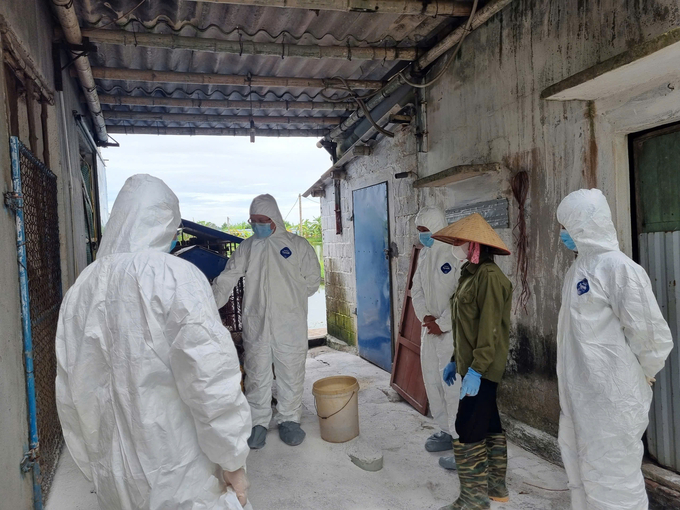
Director of the Department of Animal Health Nguyen Van Long inspected the situation of African swine fever in Hai Phong before Typhoon No. 3 occurred. Photo: Dinh Muoi.
Dear Mr. Nguyen Van Long, Typhoon No. 3 caused serious damage to farmers mostly in Northern areas. When the damage was still intact, the risk of epidemics existed and threatened the people. Can you tell us the situation of animal disease after the storm and the specific directions and actions of the Department of Animal Health?
In order to restore production soon, one of the required measures is not to let the disease occur on the livestock as well as aquatic products. The Department of Animal Health has advised the Ministry of Agriculture and Rural Development to promulgate guiding documents and instruct localities very specifically about the contents to be implemented.
The first is to clean and disinfect farming areas thoroughly, not once but many times continuously because the pathogens have now spread everywhere. Secondly, breeds purchased to raise must have a clear origin from facilities without epidemics to avoid the case of spreading the disease.
Thirdly, after heavy rains and flooding, the pathogens spread everywhere. It is necessary to quickly organize vaccinations so livestock can gain resistance to the disease and develop an immune response. This is a very important matter that farmers need to implement immediately.
Fourthly, farmers must regularly monitor farming areas to promptly detect pathogens or epidemics in time, absolutely avoiding the discard of dead cattle, poultry, or aquatic products on the environment indiscriminately.
In order to accompany people to implement these contents, the Department of Animal Health has reported to the Ministry of Agriculture and Rural Development and the Government to promptly supply disinfectants, chemicals and vaccines for localities and farmers. The unit also calls for donors and businesses to support funding, drugs and vaccines to restore production.
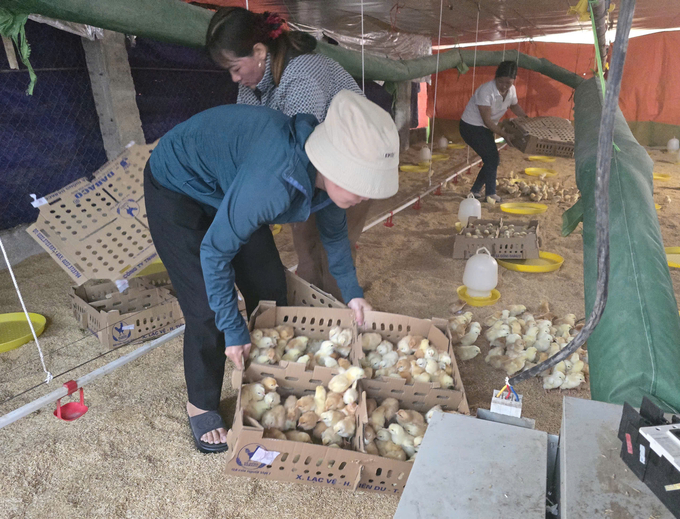
It is crucial to choose reputable breeding places and ensure epidemic safety before restoring production. Photo: Dinh Muoi.
Recently in some localities, there have been cases where breed support enterprises were not guaranteed, leading to disease outbreaks, so how will the control of inputs be done in the near future to ensure safety for farmers when they just get up after facing a disaster?
If you have decided to help, help them in a methodical manner, supply the seed to ensure safety. The people have lost almost everything, only left with a little capital to get back after the disaster. If they also lose it due to epidemics, life would be beyond difficult.
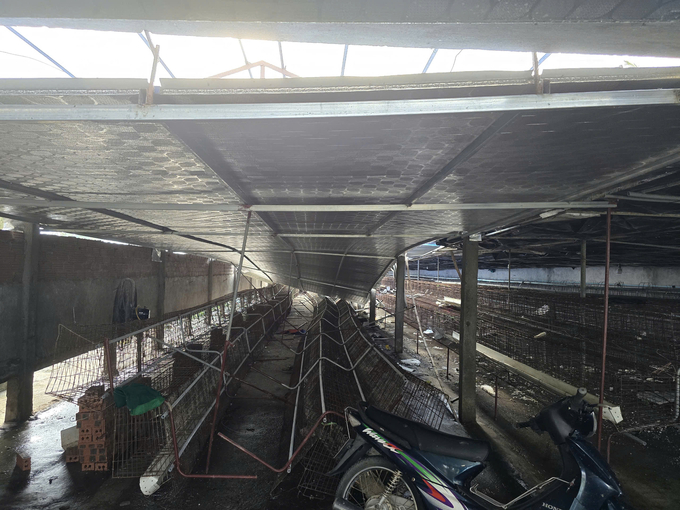
Many people are left empty-handed after the devastating natural disaster. Photo: Dinh Muoi.
The thing farmers now need the most is capital, the second is disease-free breeds with clear origins and good quality. Next is to organize the general disinfection and vaccination for livestock herds. Veterinary staff need to provide guidance to people and monitor the newly released livestock herds because the pathogen is widely circulating at present. It is essential to promptly detect and handle cases of disease outbreaks. If farmers let the disease spread widely and then treat it later, it would not be effective.
Performing these contents requires veterinary forces at all levels to go and guide people directly. More than ever, people are in need of a helping hand to rise up again.
Facing the current situation, what does the Department of Animal Health recommend on the roadmap, time and process so farmers can ensure environmental as well as epidemic safety while restoring production and minimizing risks?
After the storm, people all have this mentality of quickly restabilizing production, but the situation would become very dangerous if they are not cautious. Veterinary forces need to promptly guide people to implement epidemic safety measures, meaning that before people come back to livestock farming, they need to perform general cleaning and disinfection carefully.
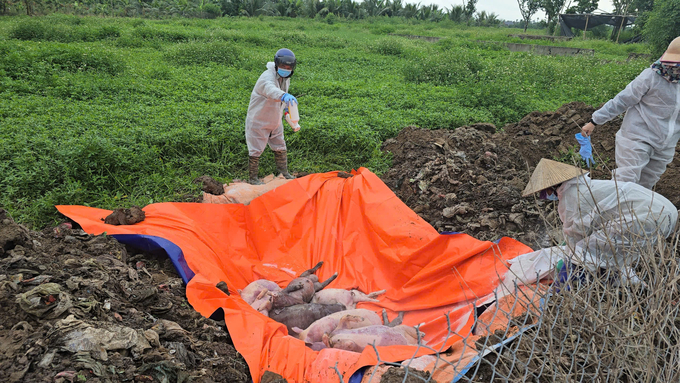
After the storm, many places are flooded, pathogens have spread everywhere, the risk of disease increases. Photo: Dinh Muoi.
The Ministry of Agriculture and Rural Development has sent a written request to the People's Committees of provinces and cities to direct relevant departments, agencies and units to proactively prevent and control diseases for livestock, urgently organize the implementation of general cleaning, detoxification and disinfection immediately after the rain and flood ends to destroy pathogens in the environment.
The Department of Animal Health is receiving documents proposing to support the vaccine and chemicals from the national reserve to localities to treat the environment, prevent and control epidemics.
Thank you, sir!
Translated by Samuel Pham
/2025/05/27/4731-2-223159_980.jpg)
(VAN) No votive paper, no styrofoam, no plastic bags, no plastic bottles, and no single-use plastic trays are the key rules tourists should keep in mind when visiting Con Dao.

(VAN) In the fight against plastic pollution, Vietnam has been demonstrating a proactive, pioneering, and active role in addressing the greatest environmental challenge today.
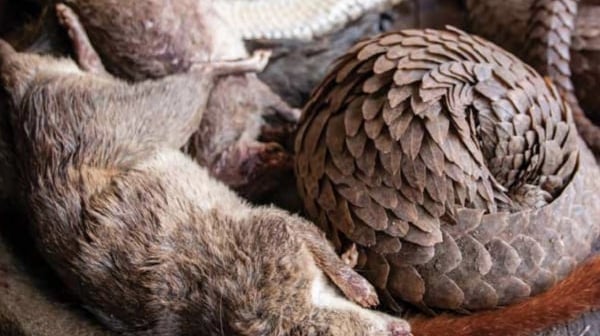
(VAN) The WOAH guidelines provide a vital tool for risk chain analysis, covering the extraction, transportation, consumption, and handling of confiscated wildlife.
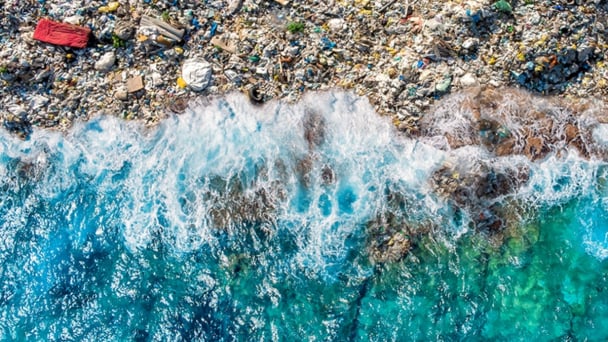
(VAN) World Environment Day 2025 is launched by the United Nations Environment Programme (UNEP) with the theme 'Beat Plastic Pollution'.
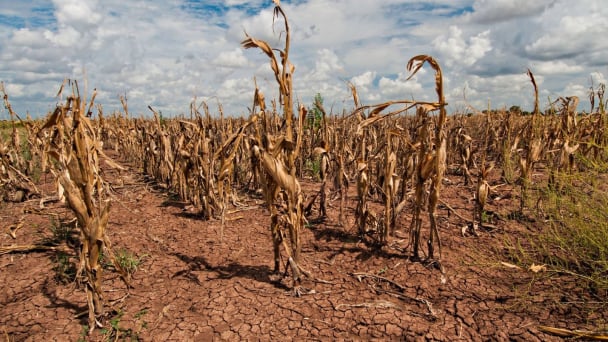
(VAN) As climate whiplash reshapes yields, experts say data-driven tools and targeted relief are critical to feed America.
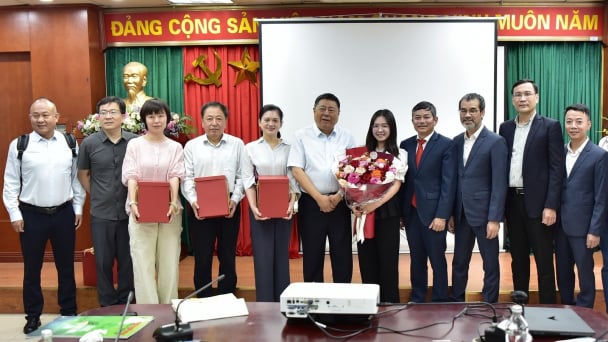
(VAN) The alignment in goals and operational direction between the Vietnam Agriculture and Nature Newspaper and Shaanxi Daily opens up promising prospects for journalism and media cooperation.
/2025/05/26/3422-3-102748_432.jpg)
(VAN) Prime Minister Pham Minh Chinh has been honored as the Distinguished ASEAN Leader at the ASEAN Leadership and Partnership Forum (ALPF) 2025 held in Malaysia, affirming Vietnam’s role and reputation.